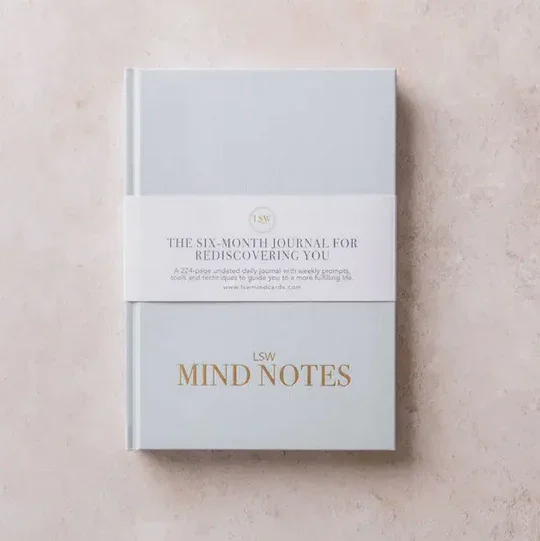The Science Behind Well-Being: How Mindfulness Enhances Your Mental Health
In today’s fast-paced world, it’s easy to feel overwhelmed, anxious, or mentally drained. Between endless to-do lists, digital distractions, and constant demands, our minds often run on autopilot, leaving us disconnected from the present moment. This is where mindfulness comes in—a practice rooted in ancient traditions, yet supported by modern science.
If you’ve ever wondered What are the benefits of mindfulness? You’re not alone. Mindfulness has become one of the most widely studied approaches to improving mental health and overall well-being. From reducing stress and anxiety to enhancing focus and emotional resilience, the science behind mindfulness reveals how this simple practice can transform your daily life.
At J.O.Y. Journey of You, we believe that true joy begins when you connect deeply with your spirit, embrace self-awareness, and nurture your inner world. Mindfulness is one of the most powerful tools to support this holistic journey of healing and growth.
What Is Mindfulness?
Mindfulness is the practice of paying purposeful attention to the present moment without judgment. Instead of dwelling on the past or worrying about the future, mindfulness helps you tune in to your thoughts, feelings, and surroundings with awareness and acceptance.
This practice can be as simple as focusing on your breath, observing your thoughts as they arise, or even eating a meal with complete presence. Over time, mindfulness rewires your brain to handle stress better and fosters a more balanced emotional state.
The Science Behind Mindfulness
Modern neuroscience and psychology have shed light on how mindfulness impacts the brain and body. Research shows that regular mindfulness practice:
Activates the prefrontal cortex, the area responsible for decision-making and emotional regulation.
Reduces activity in the amygdala, the brain’s “fear center,” leading to lower stress responses.
Enhances neuroplasticity, allowing the brain to form new, healthier patterns.
Improves connectivity between different brain regions, boosting self-awareness and emotional resilience.
In other words, mindfulness doesn’t just feel good—it physically reshapes your brain for better mental health.
What Are the Benefits of Mindfulness?
Now, let’s dive deeper into the real-life benefits of mindfulness and how it can improve your overall well-being.
1. Reduces Stress and Anxiety
One of the most well-documented benefits of mindfulness is its ability to reduce stress. By focusing on the present, mindfulness lowers cortisol levels (the stress hormone) and helps you respond calmly instead of reacting impulsively.
2. Improves Emotional Well-Being
Mindfulness cultivates emotional awareness, making it easier to recognize, accept, and manage your feelings. This results in reduced emotional reactivity and improved mood.
3. Enhances Focus and Concentration
In a world full of distractions, mindfulness sharpens your ability to concentrate. Studies show that it improves attention span, memory, and cognitive performance.
4. Boosts Self-Awareness
By observing your thoughts and behaviors without judgment, you gain insight into your patterns, allowing you to make more conscious choices in life.
5. Supports Better Relationships
Mindfulness encourages active listening, empathy, and compassion, leading to healthier and more fulfilling relationships.
6. Improves Sleep Quality
Practicing mindfulness before bedtime calms the mind, reduces overthinking, and promotes deeper, more restorative sleep.
7. Strengthens Resilience
Mindfulness equips you with tools to handle life’s challenges gracefully. You become less reactive, more adaptable, and capable of bouncing back from difficulties.
How to Practice Mindfulness in Daily Life
Mindfulness doesn’t require hours of meditation or a quiet retreat—it can be seamlessly integrated into your daily routine. Here are some practical ways to start:
Mindful Breathing: Take a few minutes each day to focus solely on your breath.
Mindful Eating: Savor each bite, noticing the taste, texture, and smell of your food.
Mindful Walking: Pay attention to the rhythm of your steps, the ground beneath you, and your surroundings.
Body Scan Meditation: Gently observe sensations in different parts of your body, releasing tension.
Gratitude Practice: Reflect on three things you’re grateful for each day, fostering positivity.
The Link Between Mindfulness and Mental Health
Mindfulness is not just a relaxation technique; it’s a powerful mental health tool. Research indicates that mindfulness can:
Reduce symptoms of depression and prevent relapse.
Help individuals manage post-traumatic stress disorder (PTSD).
Lower generalized anxiety disorder (GAD) symptoms.
Support people dealing with chronic pain by changing their perception of discomfort.
By creating space between your thoughts and reactions, mindfulness empowers you to approach challenges with clarity rather than being overwhelmed.
FAQs About Mindfulness
Q1. What are the benefits of mindfulness for beginners?
Beginners often experience reduced stress, improved focus, and a greater sense of calm within just a few weeks of consistent practice.
Q2. Do I need to meditate to practice mindfulness?
Not necessarily. While meditation is a common way to practice mindfulness, you can also bring mindfulness into everyday activities like eating, walking, or journaling.
Q3. How long does it take to see results from mindfulness?
Research suggests that practicing mindfulness for as little as 10–15 minutes a day over 8 weeks can bring noticeable improvements in mental health and well-being.
Q4. Can mindfulness replace therapy or medication?
Mindfulness is a supportive practice, but it’s not a substitute for professional care. It works best when integrated with other forms of treatment recommended by healthcare providers.
Q5. Is mindfulness suitable for everyone?
Yes, mindfulness can benefit people of all ages and backgrounds. However, if you have a history of trauma, it’s best to start under the guidance of a qualified professional.
Mindfulness and the Holistic Journey of Healing
At J.O.Y. Journey of You, we see mindfulness as more than a practice—it’s a pathway to self-discovery and spiritual growth. When you embrace mindfulness, you align with the universal flow of energy, connect with your authentic self, and open the door to profound healing.
Mindfulness, combined with intuitive coaching and energy healing, creates a powerful synergy that nurtures your mind, body, and soul. This holistic approach helps you not only manage mental health challenges but also step into a life of joy, balance, and fulfillment.
Conclusion
Mindfulness is not just a buzzword—it’s a scientifically proven practice that enhances mental health, reduces stress, and improves overall well-being. By bringing awareness to the present moment, you can cultivate resilience, strengthen relationships, and live with greater clarity and peace.
So, the next time you find yourself asking, What are the benefits of mindfulness? Remember that the answer lies in improved emotional balance, sharper focus, and deeper self-awareness.
At J.O.Y. Journey of You, we invite you to begin your healing journey today. Explore mindfulness as a tool for transformation, and discover the true joy that arises when you align with your inner spirit.



